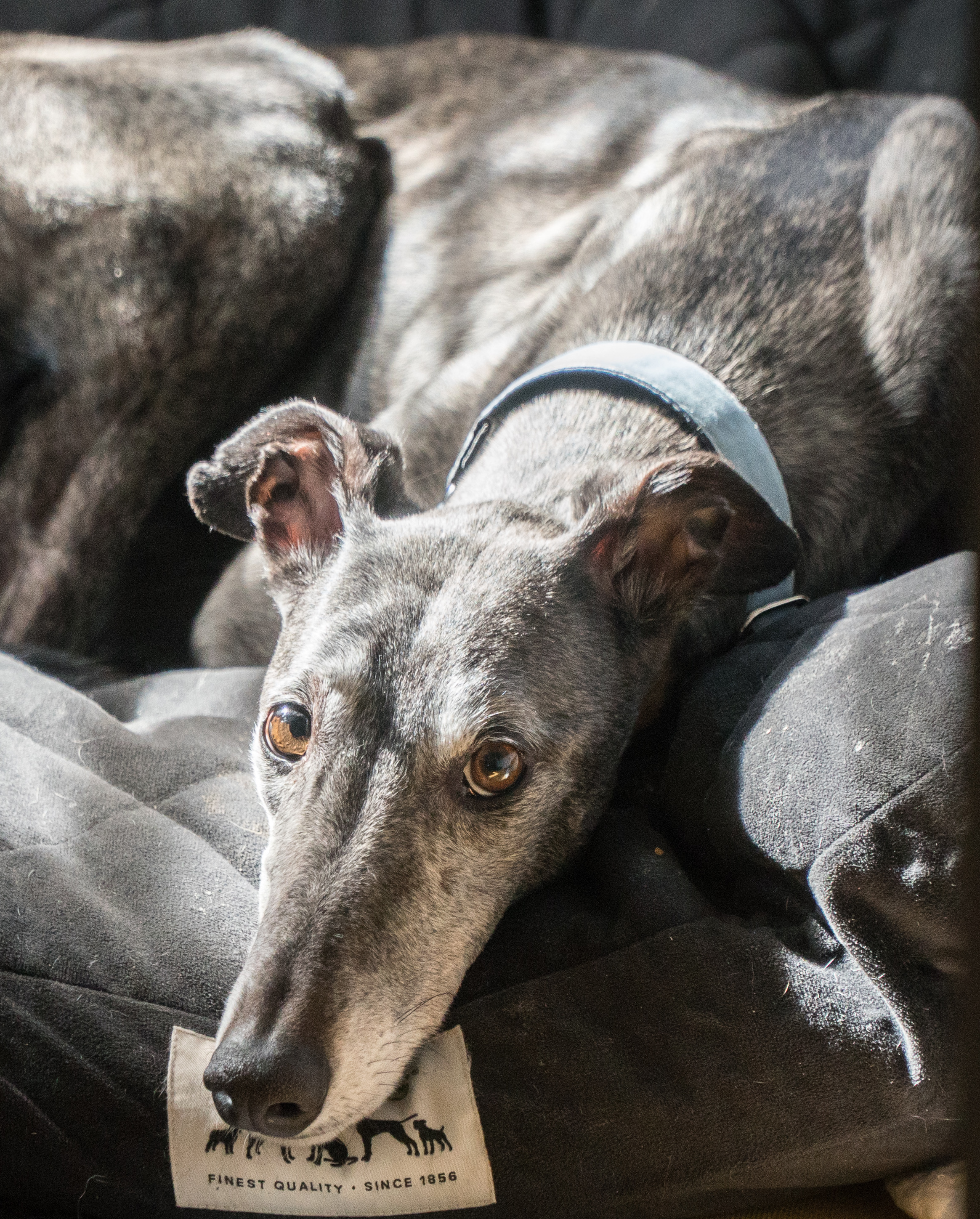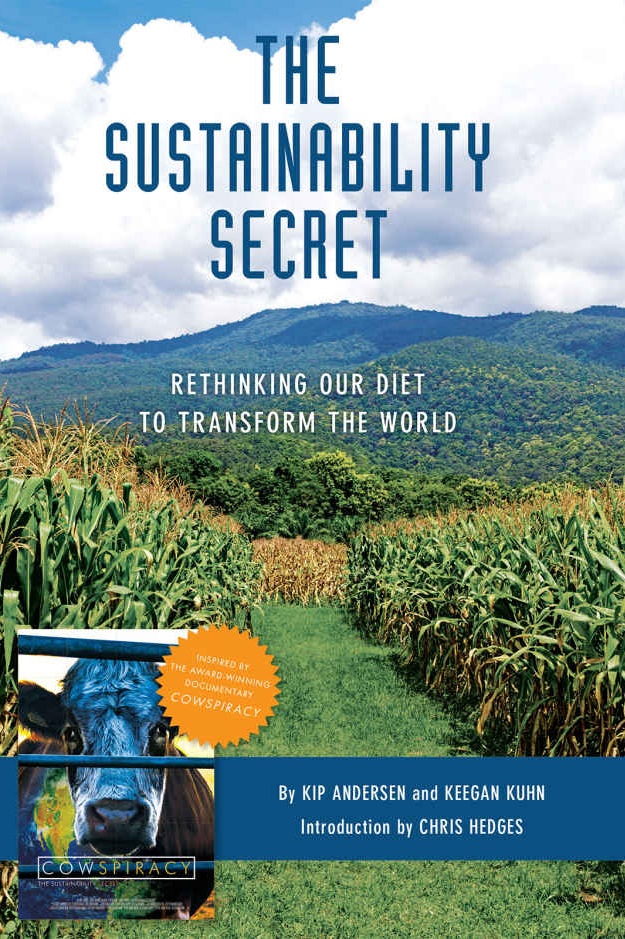
Eunice wrote “What The Health” (BenBella Books, 2018; Xlibris, 2017) and ghost-wrote “The Sustainability Secret” (Insight Editions, 2015), the official, stand-alone companion books to the documentaries by Kip Andersen and Keegan Kuhn, “What The Health” (2017), and “Cowspiracy” (2014), both available on Netflix.
If the films are a peephole, then the books knock down the door, diving into expanded interviews, extensive research, and personal narratives.

Scientific literature shows that eating saturated fat—mainly found in animal products like meat, dairy, and eggs—is more strongly associated with death than smoking cigarettes.
Think about that. If, at a neighborhood cookout, the dad next door offered you—and your child—a cigarette and a light, how would you react? And yet we accept, with thanks, the glistening beef burgers from that same dad.
What’s the difference between taking the cigarette and the burger? The smell and the taste. The social assumptions. The habits. The lack of knowledge.
Journey with Kip and Keegan as they crisscross the country, talking to physicians, dietitians, cardiologists, pediatricians, bariatric surgeons, lawyers, economists, activists, and food safety advocates in a passionate search for the truth about the food we eat, and the stunning implications for our health and the country’s cascade of killer diseases.
Along the way they meet René Miller, whose home is routinely drenched by “manure cannons” from the factory farm next door; slaughterhouse vet Dr. Lester Friedlander who blew the whistle on Mad Cow Disease; political prisoner Jake Conroy; and world-class athletes like former NFL-defensive lineman David Carter and ultra-endurance athlete Rich Roll, who completed 5 Ironman triathlons in under a week, and many other fascinating characters, each with their own piece of the puzzle.
There is a health revolution brewing. Many people know there’s something terribly broken about the industrial food, medical, and pharmaceutical systems, but they don’t know what it is. It’s no wonder, because there is an intricate political and corporate apparatus in place to keep them from finding out.
People think heart disease, cancer, and diabetes are inherited, not realizing that what they’ve actually inherited are the eating habits of their parents and grandparents. Lifestyle choices like diet and (lack of) exercise are responsible for about 70 percent of deaths in this country. Diseases that kill millions can be prevented, or even reversed.
What The Health takes you on an adventure, uncovering the lethal entwining of the food, medical, and pharmaceutical industries with our own government, and the corporate, legislative web designed to confuse the public and keep Americans chronically—and profitably—ill.
Praise for What The Health
“What The Health lobs a bombshell into the typical American diet.
Don’t read What The Health unless you want to change the way you eat—but if you do, the book presents a compelling path to longevity.”
--Foreword Reviews
“What the Health” is an important addition to the existing literature on how our food causes fatal diseases. This meticulously researched book… compellingly show[s] that our food — particularly meat and milk — are the biggest causes of obesity and fatal diseases.
--The Washington Book Review
[“What The Health”] takes the reader on a kind of health and medical adventure of informed discovery, uncovering the lethal entwining of the food, medical, and pharmaceutical industries with our own government, and the corporate, legislative web…Deserving of as wide a readership as possible, “What The Health” should be considered an essential and critically important addition.
--The Midwest Book Review

A distinction is often made in the vegan world between “ethical” veganism—being vegan for the sake of the animals—and “environmental” veganism.
I don’t believe that distinction exists.
Environmental veganism—being vegan for the sake of the planet, all life, and future generations—IS ethical veganism. It isn’t just about saving trees or pretty places—it’s about preserving life, all life. It is about a commitment to non-violence not only towards animals and towards ourselves, but towards our planet. If that isn’t ethical, I don’t know what is.
The massive animal agriculture industry—the multi-billion dollar business of raising and slaughtering 70 billion land animals and trillions of marine animals every year for human consumption and exploitation—is one of the leading causes of deforestation, water use, land use, is responsible for more greenhouse gases than the global transportation industry, and is a primary driver of rainforest destruction, species extinction, habitat loss, topsoil erosion, ocean “dead zones,” and a host of other environmental ills. Animal agriculture is a catastrophic threat to the future of all species, and one of the environmental industry’s best-kept secrets.
Firmly rooted in science and supporting research, “The Sustainability Secret” reveals the devastating environmental impact of the meat and dairy industry and offers a path to global sustainability for a growing population.
Every single day, a person eating a plant-based diet saves more than 1,100 gallons of water, 45 pounds of grain, 30 square feet of forested land, the equivalent of 20 pounds of carbon dioxide, and one animal’s life. Every single day.
“For me,” Howard Lyman, a fourth-generation-cattle-rancher-turned-vegan, said, “it’s treating the environment in such a way that it’s better tomorrow than it is today. That’s as straight as it comes. When I leave this planet, I’m going to leave my kids and grandchildren a place to live. Did I do what I could for them?”
That is ethical veganism, no doubt. Everything is connected. It is choosing life over death, for the animals, for ourselves, for our children and grandchildren and great-grandchildren. For the Earth.
“Do you realize,” Lyman asked me, pinning me with his eyes, “75 percent of Americans consider themselves to be environmentalists? You don’t think we could solve this problem in a heartbeat? I tell you what. All we would need is for the environmentalists to live what they profess and we’d be on a new course in the world.
“You’re fortunate,” he said emphatically. “I wish I knew what you know when I was your age, but I didn’t. You can change the world.
“You must change the world.”
Praise for The Sustainability Secret
“If you care about the future of all life on this planet, start here. The Sustainability Secret should be a wake-up call for anyone concerned about sustainability; we simply cannot ignore the devastating environmental impact of our diet any longer. The good news—yes, there is good news—is that we make a difference at every meal.”
— Will Potter, author of Green Is the New Red: An Insider’s Account of a Social
Movement Under Siege
“The Sustainability Secret proves we have the power to slow, if not stop, the madness of environmental destruction and its consequences for all life on Earth. With a clear and deliberate focus on the facts, authors Kip Andersen and Keegan Kuhn expose the environmental community’s stunning willingness to ignore animal agriculture’s destruction of ecosystems. I will carry this book with me because its illustrations demonstrate every essential point as to why animal agriculture must end now and how wonderful it is that we already have its replacement–veganic agriculture.”
—Will Anderson, author of This is Hope: Green Vegans and the New Human Ecology
“The Sustainability Secret vividly exposes the single largest contributing factor to our demise and that of other species, which is the consumption of animals and the supportive animal agricultural systems, and then provides a pathway toward a healthier, more peaceful and just planet by re-connecting us to the stark realities of food choice and sustainability, urging all of us to act, and to do so now.”
—Dr. Richard A. Oppenlander, author of Food Choice and Sustainability and Comfortably Unaware





